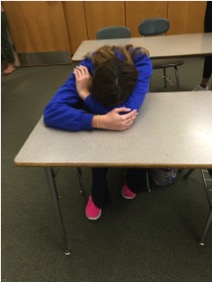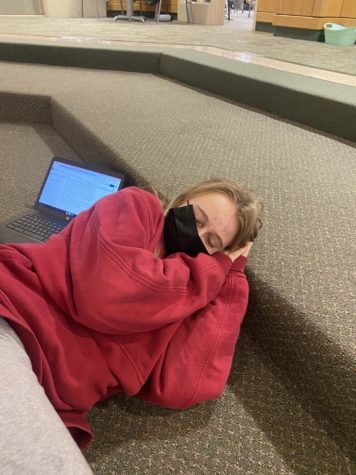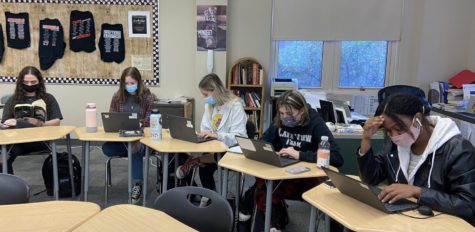Crash longer, Crash less
May 9, 2016
Most experts agree that teenagers require more sleep during adolescence to help them study, grow, and mature in a healthy manner. The American Academy of Pediatrics argues the school day should start at 8:30 to better align with normal sleep cycle of teens. Delaying the start of school until 8:30 in the morning will allow students to get  one additional hour of deep REM sleep and show dramatic changes in both the academic and physical well-being.
one additional hour of deep REM sleep and show dramatic changes in both the academic and physical well-being.
Studies show that academic performance was improved for students who get 9 hours of sleep at night. The Center for Applied Research and Educational Improvement at the the University of Minnesota, examined 8 schools with later start times in Minnesota, Colorado, and Wyoming. They reported, “The schools saw increases in standardized test scores and attendance rates and a decrease in tardiness.” Moreover, general academic performance increased for most students. Julia Kennedy and Olivia Anderson, both honors student at Ipswich High, commented on this subject. Olivia Anderson would welcome an additional hour of sleep in the morning and stated “If students are well rested they will be more apt to retain information and stay alert in class.” Julia Kennedy stated “Sometimes I am very drowsy during first period and sometimes feel like I am going to fall asleep. This causes me to zone out sometimes. This interferes with my learning and comprehension of material.” In fact, “The American Academy of Pediatrics have urged schools to delay start times for older students to 8:30.” Schools on the North Shore are taking notice. The Melrose School Committee has already voted to start high school at 8:15 am next year.
Improved health is another big benefit to teens who sleep later in the morning. According to the Center for Disease Control, “Children that get a longer nights rest are less likely to have issues with mood, depression, and anxiety.” Both the CDC and the AAP have urged schools to delay start times for older students to 8:30 am. Both organizations cited “significant risks that come with chronic sleep loss including being overweight, drinking alcohol, smoking tobacco, and using drugs, as well as poor academic performance.”
Finally, the National Highway Traffic Safety Administration states that “sleepiness and drowsy driving are a major cause for increased accident rates among teens.” Furthermore, the University of Minnesota study reported “The number of car crashes involving teen drivers dropped 70% after a school shifted its start time from 7:35 am to 8:55 am.”
The argument for delaying school start time is very compelling. As stated, an 8:30 am start time shows dramatic improvements in academic performance, health and well-being. The arguments against this recommendation are somewhat clear and simple, establishing new start times would be a scheduling nightmare for school administration. Unfortunately, this argument does not keep the health of teens a priority.
Principal Dave Dalton is in support of later start times, but acknowledged shifting all after school activities to new times would be difficult. Scheduling sports and after school events appear to be the biggest issue. Dalton stated “Sports tend to be scheduled later in the day when student athletes are available from all schools. Moving these to later time slots may be doable but will push most student schedules to later in the evening. While stadium fields and lighting make scheduling these events later a possibility, there would likely still be a need to access fields without lighting making scheduling of athletics and particularly interscholastic events very difficult.”
Another major obstacle is the fact the that current teacher contract is already set for a three year term and outlines the start and end time of each day for teachers. The Superintendent of Ipswich Schools, Dr. William Hart stated “Anytime you change working conditions for Union employees those changes must be negotiated. Therefore, any change in school start times will have to be negotiated by all union employees.”
Finally, Barry Hopping, a school committee board member, stated one of the biggest issues is the “impact on bus schedules, possible increase in transportation costs, and changes in the starting times at the other schools.”
When considering these three big scheduling issues, it appears the school start times are not going to change in Ipswich until a state law is passed. State Senator Cynthia Creem, of Newton has introduced a bill that would push for later school start times. Other North Shore school districts appear to be taking the lead for change, maybe Ipswich will follow? If not, it will require a new Massachusetts law to mandate change.






